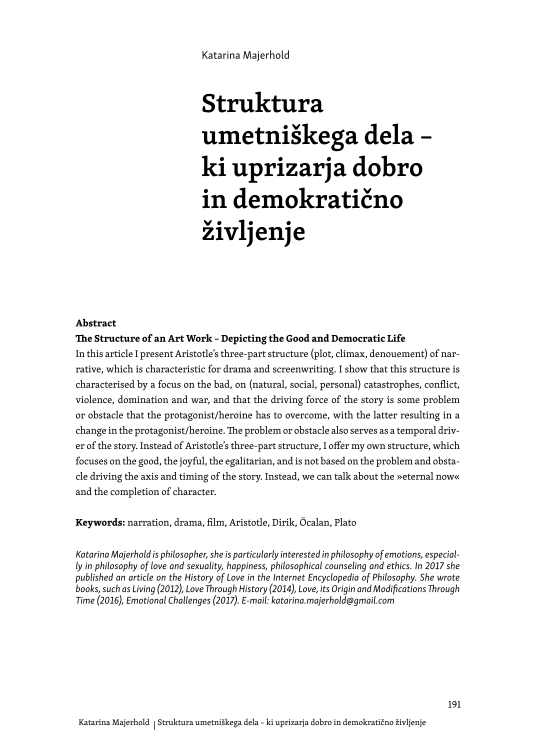In this article I present Aristotle’s three-part structure (plot, climax, denouement) of narrative, which is characteristic for drama and screenwriting. I show that this structure is characterised by a focus on the bad, on (natural, social, personal) catastrophes, conflict, violence, domination and war, and that the driving force of the story is some problem or obstacle that the protagonist/heroine has to overcome, with the latter resulting in a change in the protagonist/heroine. The problem or obstacle also serves as a temporal driver of the story. Instead of Aristotle’s three-part structure, I offer my own structure, which focuses on the good, the joyful, the egalitarian, and is not based on the problem and obstacle driving the axis and timing of the story. Instead, we can talk about the »eternal now« and the completion of character.




